Bolesław the Brave did not become a saint, because he had a bad "piar". Zygmunt August was fabulously rich, but he pretended to be bankrupt. And Zygmunt III Waza wanted to escape from Poland. These are just a few facts about Polish monarchs that you may not have heard of before.
As always, all TOP10 items are based on the articles we publish. This time, these are texts about Polish rulers. You can find even more interesting facts on similar topics in articles on power and politics.
At school, they probably didn't tell you that:
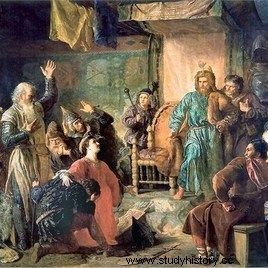 | 10. | Before he sat on the Polish throne, Władysław Jagiełło was already a seasoned politician and master of intrigue. After the death of his father, Olgierd, young Jagiełło immediately began consolidating his position. He quickly dealt with the schemes of his uncle and cousins. He didn't even hesitate to go to the killing of relatives ... (read more on that). |
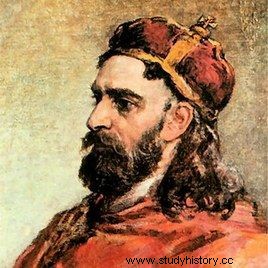 | 9. | Władysław Herman was not a complete failure at all. On the contrary. The first years of his reign were a series of successes. Only later - as a result of deteriorating health, old age, and perhaps also what we now call professional burnout - did the prince begin to lose control of the situation and submit to his surroundings (read more on this topic). |
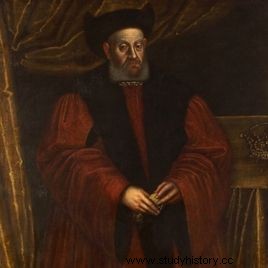 | 8. | Sigmund the Old was not very old at all. When he was called that, he was less than 60 years old. We had many more ancient rulers and politicians in this era as well. The new "title" did not result from the age, but from the crowning of the second, "young" king - Sigismund Augustus (read more on this topic). |
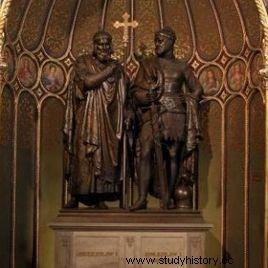 | 7. | Mieszko I and Bolesław the Brave did not become saints most likely because of a poor "piar" . The European ruler who introduced Christianity in his country was, as a rule, declared a saint. It was different with us. However, rape or robbery did not decide here. After all, they were not avoided by other leaders who have the abbreviation "St." before their name. Mieszko and Bolesław just did not take care of their image (read more about this). |
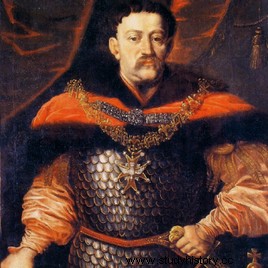 | 6. | Jan III Sobieski was not only an outstanding commander, but also ... a man endowed with enormous fantasy. After the Victory of Vienna, he planned a general crackdown on the Ottoman Empire. He understood perfectly well that the alliance with the Habsburgs would not be enough for him. So he decided to make an alliance with ... Persia (read more on that). |
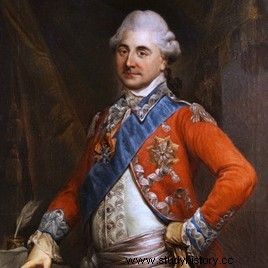 | 5. | Stanisław August Poniatowski is perhaps the most pathological case of a debtor among monarchs. The king's obligations were so enormous that it was precisely the promise to pay them that prompted him to renounce the Polish crown. After he abdicated, he didn't learn anything and was still drowning in huge debts (read more about this). |
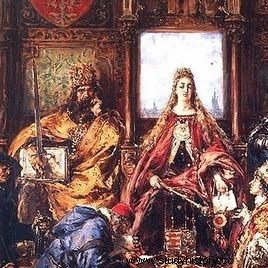 | 4. | The marriage of Jadwiga and Władysław Jagiełło did not have to be as unhappy as historians claim. It has been assumed that the relationship "was not sufficient in age, culture, and the whole world of concepts." Historian Jarosław Nikodem, however, proposes an opposite vision:a marriage based on friendship, in which Jagiełło was for the young Jadwiga more "an older brother" than a husband (read more on this topic). |
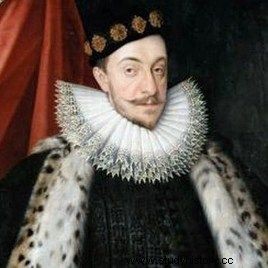 | 3. | It was close, and the young Zygmunt III Waza would follow in the footsteps of Henryk Waleze. In 1589, his father, Jan III Vasa, wanted at all costs to convince his son to leave Poland and return to Sweden. According to the Swedish historian Lars Wolke, he almost made it! (read more about this). |
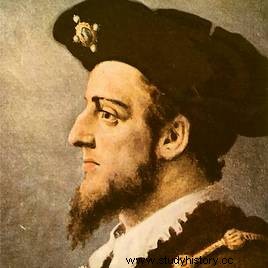 | 2. | Sigismund Augustus was fabulously wealthy, but he preferred to play the role of a bankrupt. Knowing the noble mentality, he sensed that the members of the Seyms would sooner force him to sell off the entire harvest than agree to any taxes. And there really would be something to sell. The King had a huge collection of jewelry, cannons, armor ... (read more about it). |
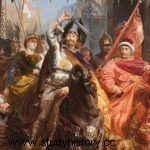 | 1. | In fact, no one like Bolesław the Brave has ever sat on the Polish throne. This nickname is one big nonsense. During his reign and for the following centuries, the ruler was simply called the Great or the Great. These were the terms that Gall Anonim and Wincenty Kadłubek knew. Only a few hundred years after the king's death, without any connection to the dynastic tradition, the term "Brave" was coined (read more on this topic). |
